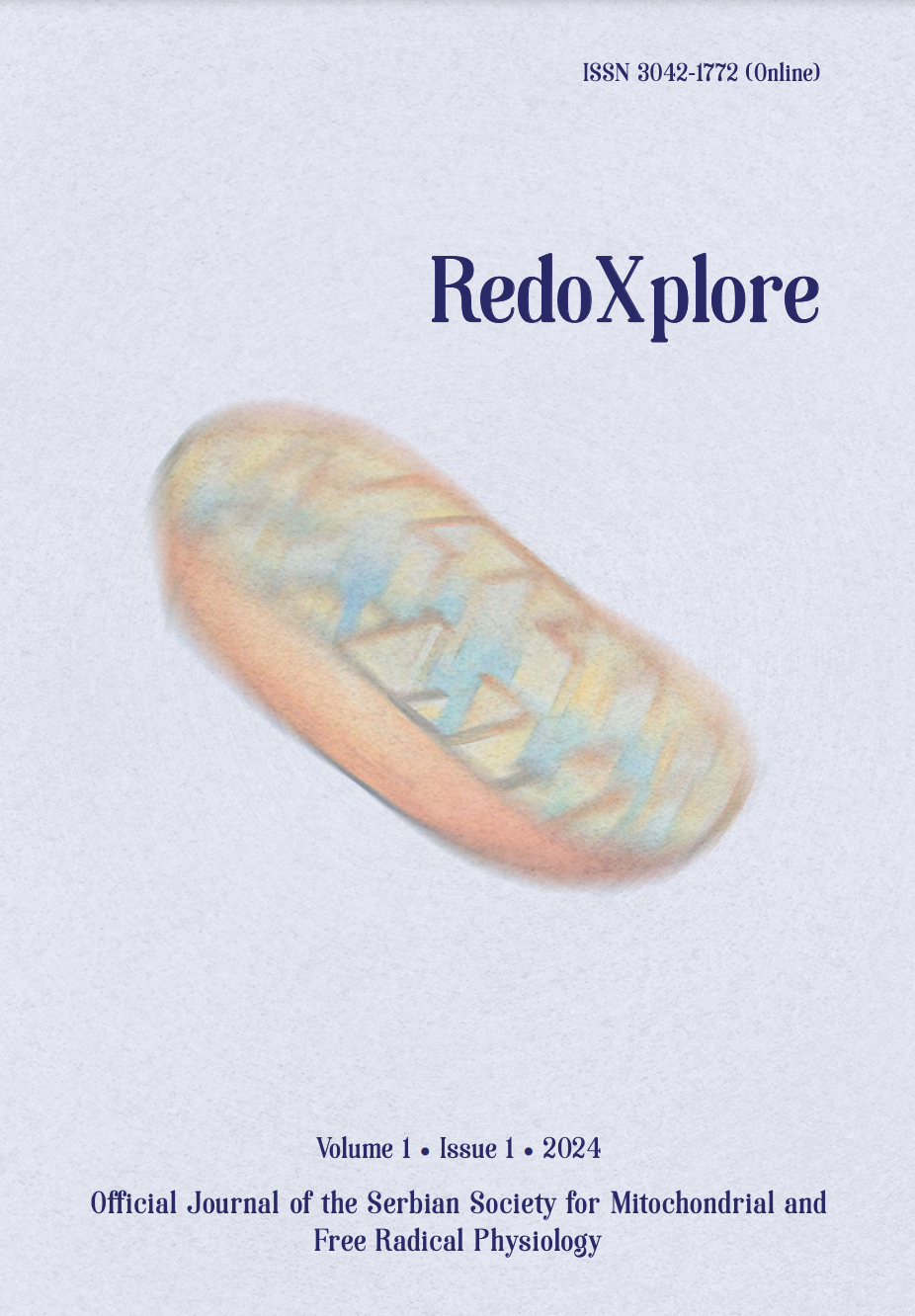
More articles from Volume 1, Issue 1, 2024
REDOX AND METABOLIC REPROGRAMMING OF BREAST CANCER CELLS AND ASSOCIATED ADIPOSE TISSUE - THE CORNERSTONES OF ADAPTIVE TUMOUR BEHAVIOUR
INSULIN MODULATES MITOCHONDRIAL STRUCTURAL AND FUNCTIONAL MOSAICISM IN BROWN ADIPOCYTES
NITRITE MITIGATES OXIDATIVE BURST IN ISCHEMIA/REPERFUSION IN BRAIN SLICES
NITRIC OXIDE, SUPEROXIDE AND PEROXYNITRITE – REDOX REGULATION OF THE CARDIOVASCULAR SYSTEM BY NITRO-OXIDATIVE STRESS AND S-NITROS(YL)ATION
DIETARY NITRATE AS PIVOT ON THE GUT MICROBIOTA-HOST REDOX COMMUNICATION
Citations

0
VITAMIN MISUSE DURING THE COVID-19 PANDEMIC – SINGLE CENTER EXPERIENCE
Faculty of Medicine, Institute of preclinical and clinical pharmacology and toxicology , Skopje , North Macedonia
Faculty of Medicine, Institute of preclinical and clinical pharmacology and toxicology , Skopje , North Macedonia
Faculty of Medicine, Institute of preclinical and clinical pharmacology and toxicology , Skopje , North Macedonia
Editor: Bato Korac
Published: 29.08.2024.
Short oral presentations
Volume 1, Issue 1 (2024)
Abstract
The global pandemic crisis affected almost every society and economy, challenged almost every health system worldwide. Above all, governments and non-governmental organizations had to fight the misinformation and conspiracy theories placed by the social and mass media. All of this had a profound impact on the public in terms of vaccine safety and the advantages of vitamin use in fighting the virus. This fear has opened doors to alternative medicines such as supplements (vitamins, minerals, herbal products, oils) that may have profound effects on the immune system. To determine the pattern of use of supplements during the pandemic in healthy individuals who tested negative for SARS-CoV-2. The 33 healthy individuals tested negative for SARS-CoV-2 in the pandemic period were included (Group 1). Total antioxidant power, iron-reducing (PAT), and plasma peroxides (d-ROMs) were measured using FRAS5 analytical photometric system and are reported in equivalents of ascorbic acid and H2O2, respectively. The oxidative stress index (OSI) was automatically calculated by the software. The obtained values were compared with 30 healthy individuals analyzed prior to the pandemic (Group 2). The mean values for oxidative stress parameters in Group 1 vs Group 2 were: d-ROMs 418 vs 266 U. Carr, PAT 3862 vs 2554 U. Carr, and OSI 111 vs 36. In all comparisons, a statistically significant difference was obtained (p<0.05, t-test). Individuals belonging to Group 1 had reported that they have consumed daily doses of Zinc (30 mg), Vitamin C (at least 1000 mg) and Vitamin D (at least 2000 IU) in a period of >1 month. Several of them have also used Isoprinosine, magnesium, and selenium. Uncontrolled intake of supplements can have a profound effect on the pro- and antioxidant balance resulting in interruption of the phycological balance and leading to increased oxidative stress index in otherwise healthy individuals.
Citation
Copyright

This work is licensed under a Creative Commons Attribution-NonCommercial-ShareAlike 4.0 International License.
Article metrics
The statements, opinions and data contained in the journal are solely those of the individual authors and contributors and not of the publisher and the editor(s). We stay neutral with regard to jurisdictional claims in published maps and institutional affiliations.






